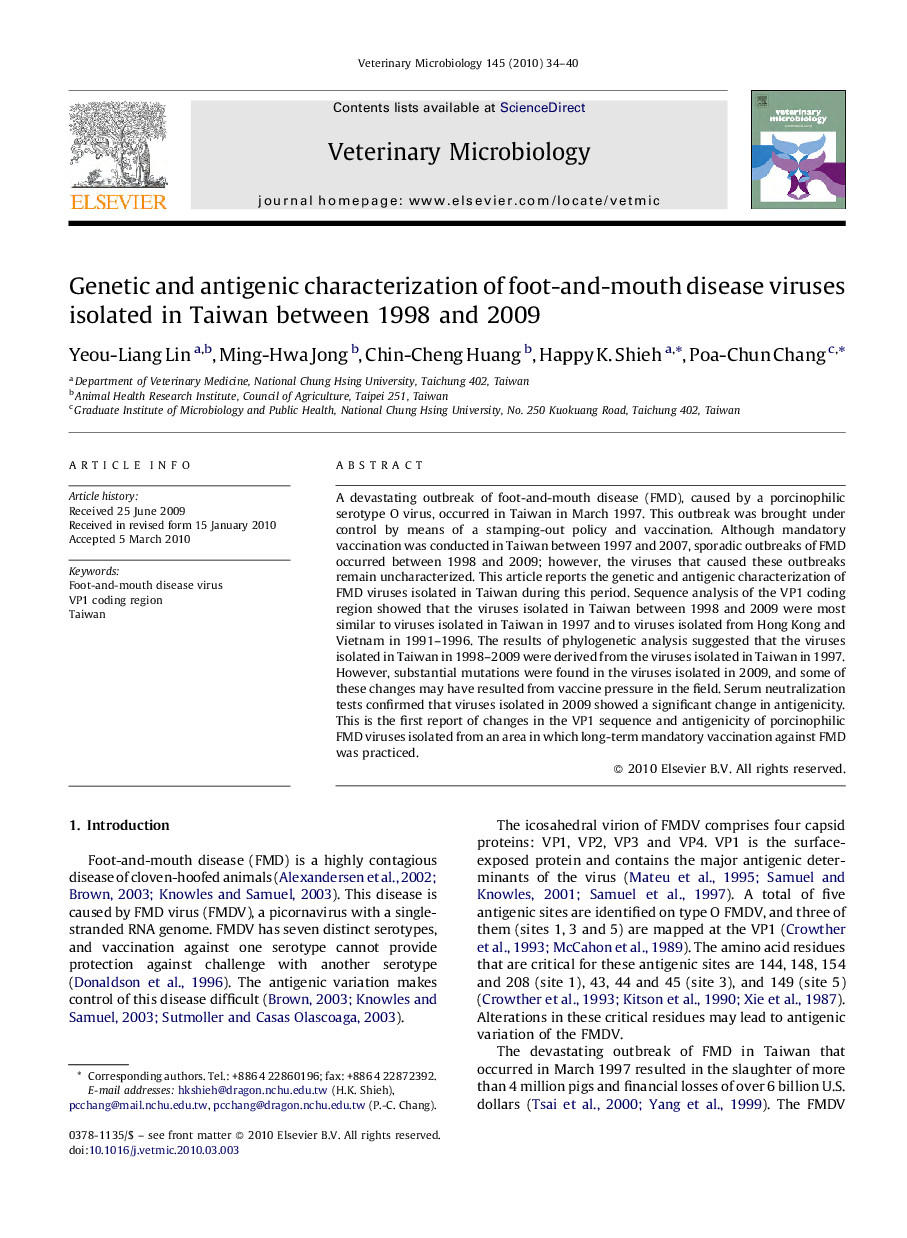| Article ID | Journal | Published Year | Pages | File Type |
|---|---|---|---|---|
| 2468067 | Veterinary Microbiology | 2010 | 7 Pages |
A devastating outbreak of foot-and-mouth disease (FMD), caused by a porcinophilic serotype O virus, occurred in Taiwan in March 1997. This outbreak was brought under control by means of a stamping-out policy and vaccination. Although mandatory vaccination was conducted in Taiwan between 1997 and 2007, sporadic outbreaks of FMD occurred between 1998 and 2009; however, the viruses that caused these outbreaks remain uncharacterized. This article reports the genetic and antigenic characterization of FMD viruses isolated in Taiwan during this period. Sequence analysis of the VP1 coding region showed that the viruses isolated in Taiwan between 1998 and 2009 were most similar to viruses isolated in Taiwan in 1997 and to viruses isolated from Hong Kong and Vietnam in 1991–1996. The results of phylogenetic analysis suggested that the viruses isolated in Taiwan in 1998–2009 were derived from the viruses isolated in Taiwan in 1997. However, substantial mutations were found in the viruses isolated in 2009, and some of these changes may have resulted from vaccine pressure in the field. Serum neutralization tests confirmed that viruses isolated in 2009 showed a significant change in antigenicity. This is the first report of changes in the VP1 sequence and antigenicity of porcinophilic FMD viruses isolated from an area in which long-term mandatory vaccination against FMD was practiced.
